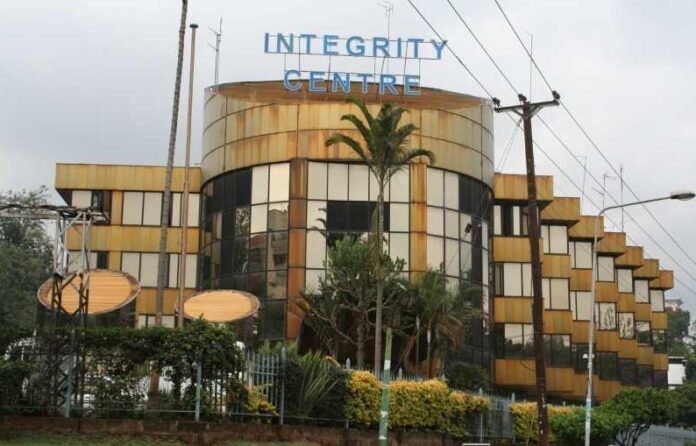| Written by Joyce Nzomo |
A new report by the Ethics and Anti-Corruption Commission (EACC) has revealed that police officers, medical workers, and immigration officials are among the top public servants who receive bribes in Kenya.
The findings are from the National Ethics and Corruption Survey 2024, which examined the level of corruption across various government departments and services.
According to the report, police officers top the list of bribe recipients, accounting for 29.93 percent of the reported cases.
They are followed by officers from the National Registration Bureau, who account for 19.7 percent.
Medical officers, including doctors, nurses, and clinical officers, came third with 9.53 percent. Land registry officials followed at 7.39 percent, while immigration officers accounted for 5.8 percent.
Other public officials mentioned in the report include health workers in public hospitals at 4.94 percent, chiefs and assistant chiefs at 3.95 percent, officers from ministries, departments, and government agencies at 2.49 percent, and officers from the National Transport and Safety Authority (NTSA) at 1.84 percent.
Also listed were National Social Security Fund (NSSF) officials at 1.4 percent, Teachers Service Commission (TSC) officers at 1.22 percent, county government employees at 1.21 percent, Members of County Assembly (MCAs) at 0.94 percent, and Lands Commission officers at 0.83
percent.
The report further revealed that almost all bribes 99.5 percent were paid in cash, while only 0.5 percent were offered in the form of food or drinks.
Most people who paid bribes did so before receiving the service, representing 75.6 percent of respondents. Another 18.5 percent paid during the service, while 3.1 percent paid after receiving the service.
A smaller group, 2.8 percent, said they paid part of the bribe before and the rest after the service.
In addition to the main government departments, the report also named other public servants involved in bribery.
These include officers at Huduma Centres, county tax collectors, teachers, lecturers, professors, county inspectorate officers (askaris), civil registration officers, traffic police, prison officers, and social services officials.
High-ranking officials such as Directorate of Criminal Investigations (DCI) officers, Members of Parliament (MPs), prosecutors, judges, magistrates, Kenya Wildlife Service officers, military personnel, and National Treasury officers were also mentioned in the report.
The survey also showed a rise in bribery cases in 2024. The number of people who were asked to pay bribes in order to access public services increased from 17.7 percent in 2023 to 25.4 percent in 2024. Out of those, 17.1 percent actually went ahead and paid the bribe.
When asked why they gave the bribe, 43.3 percent of respondents said it was because they were directly asked to do so. Another 23.3 percent said it was the only way to get the service they needed, while 18 percent said they paid to avoid long delays.
Despite paying, most people were not satisfied with the service they received. In fact, 72.5 percent of those who paid a bribe said they were unhappy with the outcome, while only 20.7 percent said the service met their expectations.
The EACC report paints a worrying picture of the state of corruption in Kenya’s public service, highlighting the urgent need for reforms and accountability to restore public trust and improve service delivery.



















